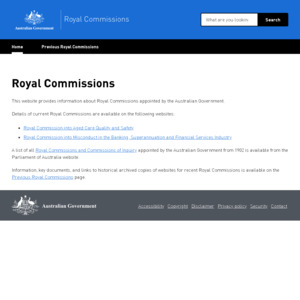Moved to Forum: Original Link
An enthralling 1000-page read! Perfect for those nights where you just can't get to sleep.
A maximum of 5 copies can be ordered per party.
Mod: As per description above, this was originally posted as a deal/joke post. Moved to forums so discussion on this subject can continue.
PDF Copy available via this link
Key Points
The final report recommends financial watchdogs consider criminal charges against unnamed organisations linked to the "fees for no service" scandal.
ASIC will become the primary conduct regulator overseeing superannuation.
The Government has now agreed to create a national farm-debt-mediation scheme that would assist borrowers to address financial difficulties that have caused loans to become distressed.
The Government will establish a so-called compensation scheme of last resort to allow consumers and small businesses, who have been failed by financial firms, to have their cases heard.
Some of the mortgage-broking industry's worst fears are contained in the final report, with the commission recommending the industry move from a commission-based to fee-based model.
Buying a Car: The final report recommends moving to a deferred sales model, meaning customers could think about whether they actually need the extra insurance.

@RecklessMonkeys: To answer your question first:
None. Regulation always has a part to play even in free markets, because no economy or market actually approaches a truly "free" market. There will always be barriers to competition, monopolistic pressures, and other factors.
But to continue the discussion:
Give me an ethical or moral argument that rent-seeking should be limited and that individuals should not be allowed to contract freely, (I'm going to ignore the reference to banks' tentacles - you've merely replaced one emotive term with another);
You made a reference to high house prices - if your concern is not with affordability, then why is high house prices even an issue? As to "loose credit", that is nothing other than banks being willing to lend to individuals - but noone is being forced to borrow money so I still see no reason why this is the fault of the banks more than it is the fault of individual borrowers (maybe we should regulate, with penalties, people borrowing more than they can repay?)
That hasn't happened in Australia yet, so all indications seem to be that Australia's banking and property markets are fairly well regulated - this is especially so since we escaped basically unharmed (compared to other countries) from the GFC.